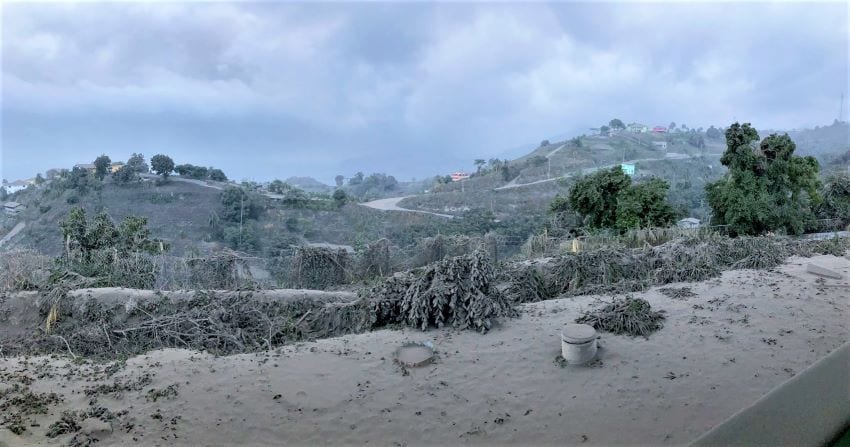
Volcanic ash is toxic for animals, but it can prove beneficial to crop farmers, in the long term.
This was divulged on VOB’s Brass Tacks Sunday programme, where experts from the Ministry of Agriculture and Food Security joined other professionals to discuss the impact of the ash fall on Barbados from the La Soufriere Volcano in St. Vincent and the Grenadines.
Chief Veterinary Officer, Dr. Mark Trotman, speaking about its impact on animals, said the volcanic ash, which is high in sulphur and fluorine, is abrasive, an irritant, and toxic, and could affect them in many ways.
Stating that the effects depend on the species of animals, Dr. Trotman said that horses and sheep are low grazing animals, and there was a very strong risk of them eating the ash at “the low levels of the pastures that can create all kinds of gastrointestinal problems”, such as sand colic and gastroenteritis.
Dr. Trotman also noted that ash falling on animals could be an irritant to their flesh and mucus membranes, particularly their eyes.
“Ingestion can also cause certain conditions like fluorosis,” he said, urging animal owners to take precautions to minimise their animals being exposed to the ash.
The official recommended that all feed and water containers should be covered to avoid contamination, adding that contaminated water troughs and tanks are a major source of health problems for animals.
“So, cover water; collect water and keep water stored for a number of days to protect it from the ash fall,” he stressed.

Meanwhile, Chief Agricultural Officer, Keely Holder, in responding to a query about the impact of ash on crops and soil, stated there were short-term and long-term effects.
Explaining that the short term related to the physical nature of ash, she said: “The ash can be damaging to our crops. So, in terms of the physical impact, if you have got young seedlings and quite a bit of ash is coming down on it, as well as the acid rain that we have now, where the rain is falling and it is pulling the ash with it, … that could lead to issues for the plant surface. Hydration issues, if it is absorbed. You can get damage to your leaves, to your fruit potentially.”
Speaking about the long-term effects, Ms. Holder pointed out that if ash is applied to soil, this would be beneficial to farmers.
“The geology of Barbados is that we are a coral limestone rock, so limestone is calcium carbonate. It is alkalising, so our soil PH is high. The PH that is ideal for most crops to grow is slightly acidic, PH of 5.8 to about 6.5. Our PH tends to be somewhere between 7.5 and about 8.5, so that’s not ideal for crop growth.
“When you take this ash, which is now acidic in nature and you apply it to the soil, it will actually improve the soil PH and that means there are more nutrients available to the crop and as a result you would see an improvement,” the Chief Agricultural Officer explained.
She continued: “It is actually a very useful fertiliser; I would say soil amendment to add. It has in sulphur, which is also going to be beneficial in terms of actually reducing fungal pathogens; some mildews, you actually apply sulphur to reduce it. It may have some impacts on pests as well, such as thrips mite. So, it has a number of properties that will be very useful to our backyard and crop farmers.”
